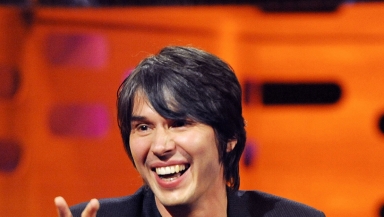
Professor Brian Cox, the rock star turned scientist, is an unlikely defender of the faith. But in a Telegraph interview today, the physicist and distinguished supporter of the British Humanist Association said: "there is naivety in just saying there's no God".
Cox was speaking about his latest series, The Human Universe, which begins on BBC Two this evening. In it he asks questions about man's existence: Why are we here? How did the universe make us? Are we alone? What is our future?
When Cox was asked how religion fits into his understanding of the Universe, he said: "It doesn't at all. I honestly don't think about religion until someone asks me about it."
Cox explained that the reason for this is that science is about asking small questions, rather than grand theorising. The answers to big questions come "almost accidentally" he said.
Although Cox said that he believed there was scientific proof that there isn't an afterlife, he added: "Philosophers would rightly point out that physicists making bland and sweeping statements is naive.
"There is naivety in just saying there's no God; it's b******s," he said. "People have thought about this. People like Leibniz and Kant. They're not idiots. So you've got to at least address that."













